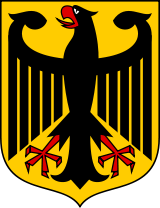Germany currently has operational nuclear reactors at present. Nuclear power accounts for about twenty percent of Germany’s electricity. Following the disaster in March of 2011 at Fukushima, Japan, Chancellor Angela Merkel appointed a panel to look into the issue of shutting down Germany’s reactors. The previous government in Germany had announced that all German reactors would be shut down by 2012 but the Merkel government had extended the lifespan of German reactors by 12 years. In May of 2011, the Merkel government announced that all German reactors would be shut down by 2022.
Following the Fukushima disaster, seven of the oldest reactors were taken offline for examination. They will not be restarted. Another reactor that had been shut down temporarily due to technical problems will not be restarted. Six more will go offline in 2021 and the three newest will be shut down in 2022. The spent fuel disposal fund which collects almost two billion Euros a year will continue to collect fees.
The nuclear industry had argued that shutting down Germany’s reactors would cost many jobs and do great damage to Germany’s industrial base. The Merkel government had tried to extend the lifespan of the existing reactors as a “bridge” to the full implementation of green energy.
The Green Party in Germany was very anti-nuclear. Germany has invested heavily in renewable energy and some studies have suggested that renewable energy could supply all electricity world-wide by 2050. They have pointed out that the decision of Germany in 2000 to invest in renewable quadrupled its green energy output by 2010 and created three hundred and forty thousand jobs. New homes being build in Germany are outfitted with solar collector to supply electricity.
Supporters of the shutdown of the reactors point out that Germany will be able to cut its use of electricity up to ten percent by making buildings and machinery more efficient. Germany is currently an exporter of energy but critics of the shutdown say that it will wind up having to import energy for neighboring countries like France.
When the Merkel government announced the intentions to halt all use of nuclear power by 2022, concern about reducing CO2 to slow down climate change and heavy investment in renewable energy were also stressed as actions the government would take.
Wind power is touted as taking up the slack in energy generation when the reactors are shut down. The biggest wind farms being planned are sited for the North Sea, but most of the reactors are in the south part of the country. This will require a major change to the German power grid including a high-capacity trunk line to carry electricity from the north to the south. Protests are already building from people who don’t want an ugly system of cables and pylons running through the beautiful countryside of the center of the country. It looks like Germany will have a mess on its hands as technology, climate change, politics, and economics all battle it out over nuclear energy.
German national seal:
